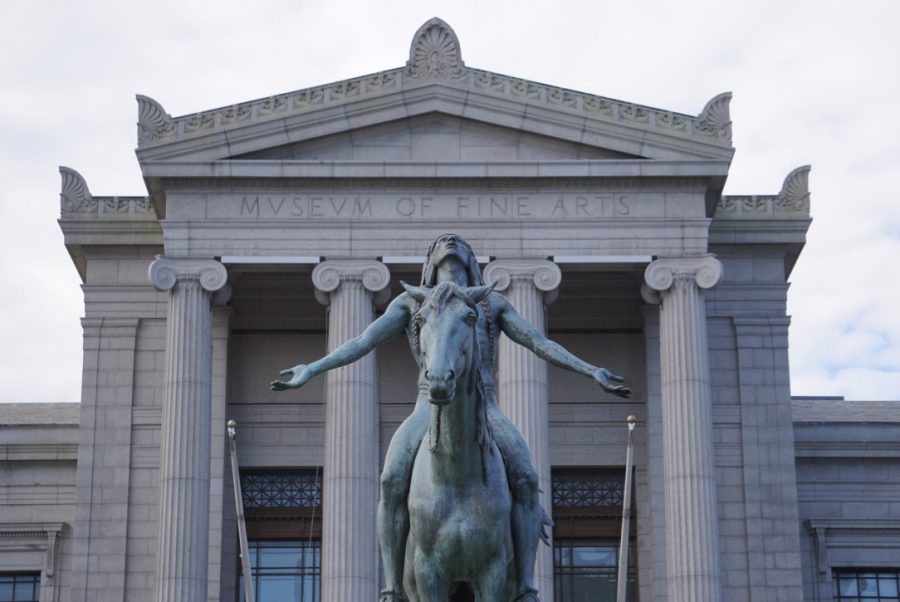MFA expands student connection through new programs
The Museum of Fine Arts is implementing a range of new programs aimed at expanding accessibility for students in the Boston area.
September 25, 2019
Boston’s Museum of Fine Arts, or MFA, is implementing a number of programs this fall designed to deepen the surrounding student community’s connection with the museum. These programs — which include expanded grants for free bus travel for students, increased accessibility to the museum’s “Ancient Nubia Now” exhibit and increased paid opportunities for high school and college students — are intended to connect Boston’s residents to art through an educational lens.
Through this initiative, the MFA is offering free access to students in Boston and Lawrence public schools and K-12 teachers across New England. Additionally, the MFA is providing funding assistance to New England schools to allow them to bring student groups to the museum.
Polly Attwood, an associate professor in teacher education at Northeastern, said building relationships and mutual respect with the community is essential to the success of these programs.
“Historically, museums like that mostly were not connected to communities and didn’t necessarily serve the local population,” Attwood said.
“Ancient Nubia Now,” which opens Oct. 13, features relics of a civilization unknown to many people. The available collection includes jewelry, metalwork and sculptures and helps to bring the great civilization of ancient Nubia into the public lens.
The MFA is offering free passes for this exhibition to sixth-grade students in the City of Boston, as it corresponds to their social studies curriculum, as well as free passes for all students who visit the gallery to return to the museum.
As a history teacher in Brookline in the 1980s, Attwood remembers when the MFA’s Nubian collection was not readily on display. Through “Ancient Nubia Now,” the MFA is placing a greater emphasis on celebrating and connecting through cultures.
“It looks like they’re really building connections and relationships and bringing in the perspectives of the community,” Attwood said.
Dalia H. Linssen, head of academic engagement at the MFA, said through these programs, the museum is attempting to bring in new audiences and create spaces that are responsive to changing demographics.
The MFA is also offering free admission to university students, faculty and staff of 15 community colleges across the Commonwealth through the Pozen Community College Access Program, as well as 80 other institutions through their university membership program.
“Up to probably about a year ago, the programs we have been maintaining have largely been opportunities allowing access, [but they have] shifted focus to engage a bit more deeply with colleges and universities,” Linssen said.
The MFA has expanded its commitment to young students through paid internship programs focusing on hands-on activities that help build skills for the professional world.
“I definitely would have loved to have had [these opportunities as a young student],” said first-year health science major Britney DeRoehn. “We had museums near my [high] school, but they were super expensive and nobody ever went to them, and I think it would have been beneficial to the community to have superior access.”
By partnering with Becoming a Man and The BASE, the MFA is paying four Boston students to create an exhibition that will be available to the public Jan. 20, 2020, Martin Luther King Jr. Community Day — a day on which museum access is free to the public. The gallery will showcase 20th-century artists of color from the Americas and open in accordance with the MFA’s 150th anniversary next year.
Since their implementation, these programs have allowed young people to connect with others, as well as with art and culture.
“One of the most powerful ways the museum can help engage students is through the power of inquiry and the power of asking questions,” Linssen said.


















